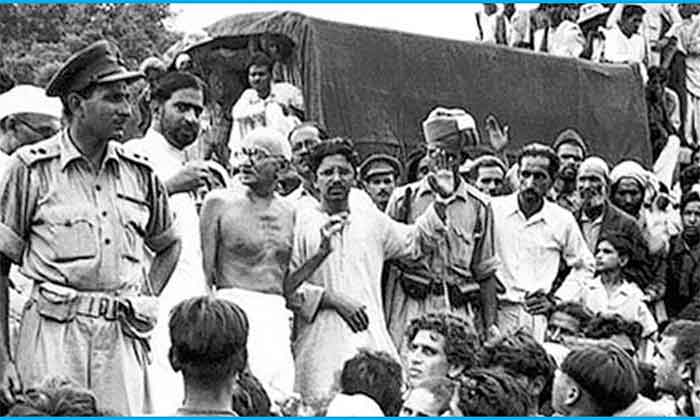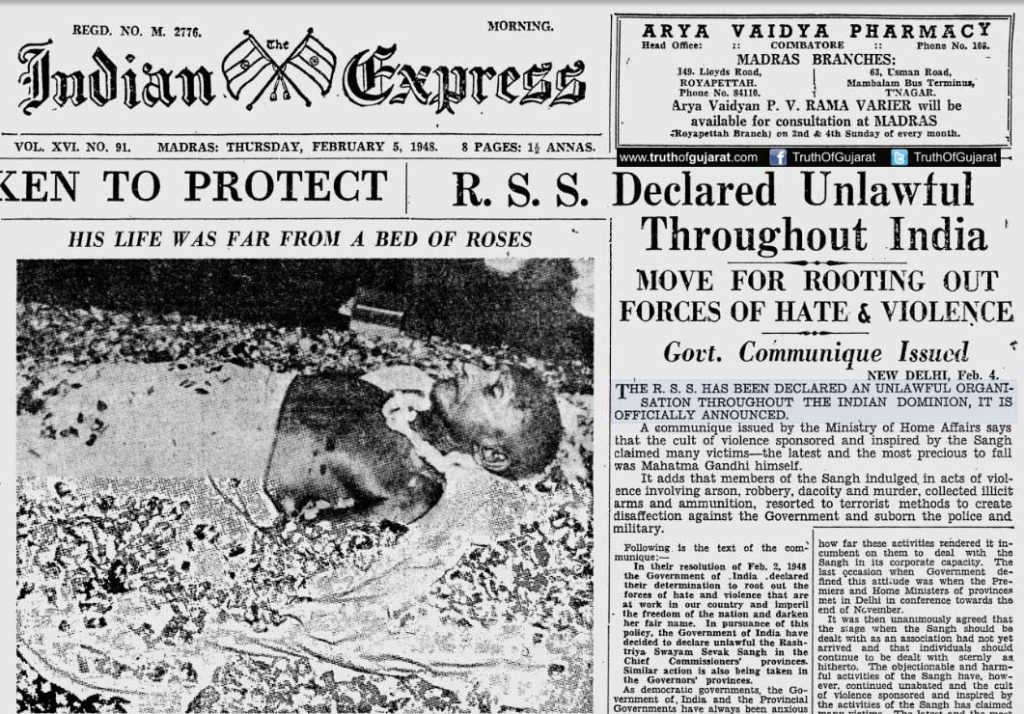
It was in 1917 that Gandhiji visited Bihar for the first time. He was pursued and persuaded by one Raj Kumar Shukla, a peasant from Champaran, to come to the rescue of the peasants against their exploitation by the British planters under the ‘Teen Kathiya system’.
The peasants in Champaran were forced to cultivate indigo in three kathas out of every 20 kathaa (20 kathas is a little less than an acre now but was 1.5 acres then) of their land for the benefit of the British planters.
They prepared dye from it and exported it to Europe for colouring cloth. The system was very exploitative and cruel to the peasants, but they had no alternative and had to suffer in silence. What could they do against the White Sahebs, who were ruling India?
Gandhiji was then an unknown entity in India. When he reached Patna and was taken to Rajendra Babu’s place, he was not allowed by the servants to draw water from the well (Rajendra Babu was not at Patna).
When he went to Champaran and was on his way to villages to meet the peasants, he received a notice to meet the Superintendent of Police. After reaching Motihari, he was served a notice to immediately leave Motihari. Gandhiji instantly sent his reply by the same messenger that he would not leave without completing his enquiry.
Then, he was served another notice to be tried for disobeying the order to leave. When he appeared at the court, the government prosecutor wanted to postpone the hearing, but Gandhiji beat them by stating that he pleaded guilty and was not going to defend his disobedience and defiance. Thus, the hearing was over and the court was left with no choice but to sentence (punish) him.
But before Gandhiji could appear before the court to receive the punishment, he received a note from the Magistrate that the Lieutenant Governor (Gait) had ordered the case against him to be withdrawn. He also received a communication from the Collector Mr. Heycock that he could continue with his enquiry and may count on “whatever help he needed from officials.”
A few days later, Gandhiji received a letter from the Bihar government to leave as he had already spent considerable time on the enquiry. He wrote in response that he could do so if the government ordered an official enquiry. The Lt. Governor Mr. Gait invited him to meet him, and later asked him to be a member of the committee. Gandhiji accepted with some conditions.
An Englishman Sir Frank Sly was appointed as the Chairman of the committee. The Committee found that the Tinkathia System was unjust and recommended its end. It thus came to its end. The peasants won freedom from exploitation and oppression by the British planters.
Unlike the Tinkathia system, the current farmers’ agitation is not for the end of some old anti-farmer exploitative law or practice continuing from the past. It is against the three laws enacted by Modi to benefit his Saheb friends at the cost of the farmers. Unlike the imperial British government, Modi is determined to crush the farmers. The farmers are not allowed to go to Delhi to protest peacefully.
Modi brigade has been working overtime to discredit them by calling them Khalistanis, Tukde Tukde Gang, Urban Naxals, Anti-nationals: in one word ‘traitors’. Modi/Godi media owned by Modi’s buddies have declared an all-out war against the farmers. The character assassination of the farmers continues unabated.
There is irrefutable evidence that the conspiracy to give the monopoly of the food grain business to his corporate benefactors was hatched a few years ago. Adani and others had been buying land since 2017 to build silos (very big gowns) to hoard food grains after the restriction on hoarding is removed. It has now been removed.
25 or more farmers have died camping in cold outside Delhi, but it has not softened Hindu Hriday Samrat’s heart. Even the Supreme Court has felt compelled to be involved in a matter which is not its business.
Modi, who had been reared by the corporates for 35 years (according to Modi himself) is paying them back at the cost of the country and its people. The farmers are his latest victims. His cruelty in dealing with them is characteristic of the Hindu Hriday Samrat and the Sangh, which has created him.
Prof Prabhakar Sinha is a political commentator
SIGN UP FOR COUNTERCURRENTS DAILY NEWSLETTER















































